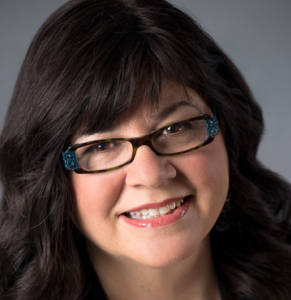If you are a Jewish kid who graduated law school – and got a job – chances are that your proud parents gave you a picture to hang on the wall of your office (or cubicle) with the famous quote, “Justice, justice, shall you pursue…”, which comes right at the beginning of this week’s Torah portion, Shoftim, meaning “Judges.”
Microsoft Word vs. Torah
When I type the words, “justice, justice”, however, Microsoft Word highlights the second word in red, to let me know that I have made a “mistake” in typing the word “justice” twice. If Moses would have had a laptop, he could have fixed this and other similar “typos” in the Torah, such as when God calls out “Abraham-Abraham”, or “Jacob-Jacob”, or “Moses-Moses”. Is it bad editing – or is it transformational? And is there a connection between “justice-justice” and these instances of duplicative names? (The answer of course, is yes.)
Terms of Endearment
When God says, “Abraham-Abraham” or “Moses-Moses,” etc., it is endearing, tender and intimate. Think of cuddling a baby or speaking the name of your beloved – we often say their names twice, because, well, once is just not enough to convey the depth of the emotions we can feel. Repeating a name like that is a verbal caress.
In the Torah, this double name-calling has another and deeper implication, which draws on the idea of “as above, so is below.” We have a heavenly and an earthly version of ourselves. The heavenly version represents our potential, the person we could be. The earthly version, on the other hand, is who we are being as the sum of our choices. Think of two portraits: one is hanging on heaven’s walls and the other one is you, walking around.
Closing The Gap In Our Alignment
When God calls out “Abraham-Abraham”, etc., we should understand that in the case of Abraham, Jacob and Moses, their two portraits were congruent and unified, exemplifying potential in action. One could argue that our purpose on earth is the process of trying to come as close as possible to that heavenly portrait. Aligning our external behavior to mirror our highest internal values is admittedly a big challenge, but as a rabbi was fond of saying to me, “we are all works in progress.”
The High Standard Of Justice In Society
But that idea doesn’t work well with ideals. A society where earthly justice is really out of sync with heavenly justice is not a “society in progress”; rather, it is an unjust society. What we can tolerate in ourselves and on an individual level is intolerable when perpetrated on a grand societal scale. For justice to be “just,” it has to be authentic, congruent and actualized. Like the proverbial pregnant woman, you can’t have just a little bit of it.
But who must act justly? We must act justly. And who enacts justice? We must enact it. It’s in our individual hands. So can imperfect beings ever create an earthly justice that aligns with heaven? We imagine heavenly justice as strict and severe and we tremble at the idea of facing the Heavenly Court, because that is one tough bench to get over.
The Two Faces Of Justice
Maybe there is another alignment going on. In Hebrew, the word, tzedek, which means “justice,” also means “righteousness.” Perhaps the double use of the word “justice” means that we cannot pursue “justice” without also being “righteous.” The fact that the Hebrew word tzedaka, which means “charity,” comes from the same word, tzedek, meaning both “justice” and “righteousness” teaches us that unless righteousness is rooted in charitable attributes such as kindness, compassion and giving, it is not “just.” Being “right with God” but not with your fellow man is simply not aligned with heaven.
In this week’s Torah portion, “justice” is not a single word, because it is not a single concept. The double word is its own congruency. That’s the alignment to strive for – justice that is righteous as well as righteousness that is just.
And when we pursue that kind of justice here on earth, then we are not only closing the gap between our earthly and heavenly selves, but we are mirroring the Heavenly court. These are the true two faces of justice and if we could make that our operative reality, then we could bring heaven right down to earth. “Justice, justice” begs us to look into the heavenly mirror. Best typo ever.


